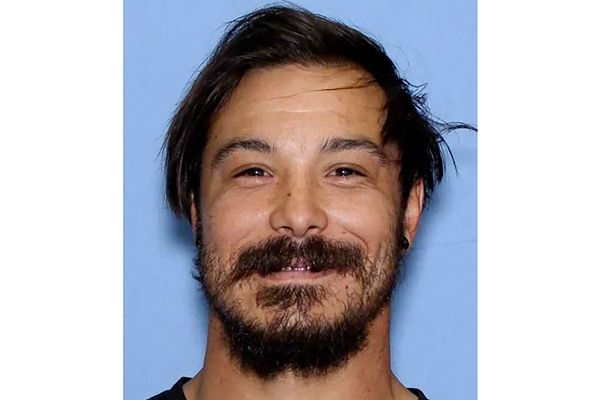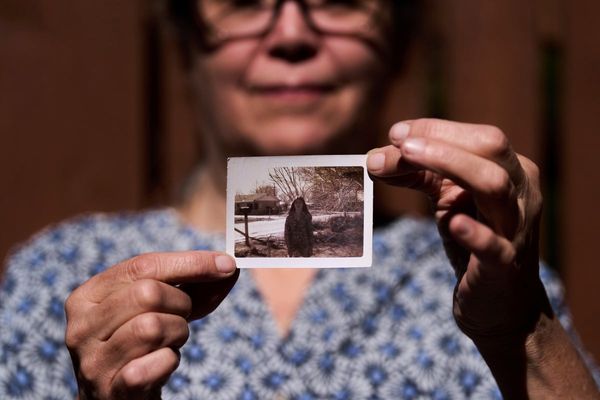Soon after earning a Ph.D. from Cornell in 1966, Ken Blanchard began teaching a management course at Ohio University. To satisfy his growing interest in leadership studies, he sought out a well-regarded colleague.
"Can I sit in on your course?" he asked Paul Hersey, a rising star among the faculty. "No," Hersey replied. "When people audit a course, they don't learn as much. But you can take my course."
Blanchard felt chagrined having to enroll in the class like the rest of the students. "My initial reaction was, I have a Ph.D. and he didn't (yet)," Blanchard recalled. "But he wanted me to make a commitment."
He told his wife Margie about Hersey's offer. As much as he hoped to learn from Hersey, he was hesitant to sign on. "Ken, get your ego out of the way and take his course," she told him.
Blanchard took her advice. And it changed his life.
Find A Way To Collaborate
The two young academics wound up working together on a textbook, "Management of Organizational Behavior." They also developed what became known as the "situational leadership" model that identified behavioral leadership styles.
From there, Blanchard's career took off. In 1979, he teamed with his wife to launch a leadership training and development firm. The Escondido, Calif.-based firm has grown steadily over four decades and now operates in over 40 countries.
He co-authored "The One Minute Manager" in 1982, a global bestseller. Co-written with Spencer Johnson, the book spawned related titles that target high-performing teams, work/life balance and other topics.
Blanchard, 85, has roughly 70 books to his name. Almost all of them involve at least one co-author.
"My process with the books is I start working on something that I'm excited about and I've given speeches on," he said. "Then I dictate all my thoughts and get them all out there."
Magnify Your Strengths
His co-authors take his dictation and run with it. They work with Blanchard to translate his thoughts onto the page and build an engaging narrative.
"Ken is a verbal processor," said Randy Conley, who has co-authored books with Blanchard. "He speaks a book versus writes a book. He's also big on both/and thinking" to amplify and expand key concepts.
Blanchard's books are short, snappy and easy to read. At only 112 pages, "The One Minute Manager" has sold over 15 million copies.
Learn It's 'We, Not Me' Like Blanchard
From a young age, Blanchard learned the value of teamwork and treating everyone with respect. He was also a natural leader.
"I was made president of the seventh grade," he recalled. "I came home and told my father."
"Ken, now that you're president, you should know something," his father replied. "Effective leadership is about we, not me."
Blanchard took his father's comment to heart. He sought to empower others to contribute to the greater good. And he gained experience collaborating with diverse groups to attain shared goals.
"I went to an elementary school in New Rochelle, N.Y., that was 95% Jewish," he said. "Then the school merged with another school that was mostly Black," enabling Blanchard to expand his horizons.
He began to appreciate the value of collaboration — and helping others attain success. Leading others to reach their goals made them more apt to reciprocate and help Blanchard attain his goals.
"I found that I like to work with others and get help from others," he said. "I'm a cheerleader and visionary. I'm not a good implementer," so teaming up with collaborators make sense.
Put Ego In Its Place Like Blanchard
Good collaboration often requires humility. To work well with others, Blanchard knew he needed to listen and learn, not show off his intelligence and keen understanding of leadership.
"To make collaboration work, you have to give up the concept of having to be right all the time," he said. "But it's not always easy to give that up. And that's when ego gets in the way."
Soon after launching his training firm, he and Margie hired a key employee who didn't perform well. They soon realized what went wrong.
"We didn't involve the six other (founding associates) in the hiring process," he said. "Margie and I thought, 'This is our company. We've got to make the big decisions.' But we learned from our mistake."
Years later, he came up with the idea to start meetings with what he calls an "Egos Anonymous" session. He modeled it on 12-step programs that combat addiction and other personal demons.
"You stand up, introduce yourself and then tell your story of how your ego is getting in your way," he said.
For example, he might start off by saying, "Hi, my name is Ken, and I'm an egomaniac. Just yesterday, my ego got in my way when I didn't listen to someone I care about and insisted I was right."
He cites two reasons why our ego can get the best of us: false pride or fear.
"With false pride, you act like you're better or smarter than others and you want to be seen that way," he said. "Then there's fear and self-doubt when you think you're not as good or smart as others" so you overcompensate by letting your ego run amok.
Blanchard: Lead Through Adversity
Effective leaders control their ego by reminding themselves that it's more important to serve than be served. This aligns with Blanchard's belief in servant leadership.
"The best leaders focus on others," he said. "They're not preoccupied with themselves."
Taking this approach makes it easier to overcome adversity.
After the Sept. 11 terrorist attacks, for example, Blanchard's firm lost a significant amount of business. In-person training came to a halt amid air-travel disruption.
The company cut costs but sought to avoid layoffs, says Conley, a longtime executive at the firm. The leadership team devised revenue-producing ideas, such as online training, to recover lost business.
"When we get through this, we're going to take the whole company to Hawaii to celebrate," Blanchard told employees in an all-staff meeting.
"Everyone cheered," Conley recalled. "It became our rallying cry."
Find The Bright Side
In early 2005, Blanchard delivered on his promise. Roughly 250 employees enjoyed a two-night trip to Maui. "Even in economic downturns, Ken's a glass-half-full guy," Conley said. "He sees possibilities, not constraints."
Throughout his career, Blanchard hasn't just preached leadership. He's lived it in guiding his company.
Among the six founding associates who joined forces with the Blanchards, none have quit the organization.
"Some have retired," said Pat Zigarmi, one of the six. "But all of us have stayed with Ken because we all felt we had influence. With Ken, people's voices count."
Zigarmi lauds Blanchard for his consensus-building style. In meetings with his executive team, he listens more than he talks.
"Ken and Margie always believed in participatory management," Zigarmi said. "We're all equal in meetings."
If disagreements arose, Zigarmi says that the team forged solutions by paraphrasing opposing views before plunging ahead.
"We'd have to argue each other's point before making our point," she said.
Ken Blanchard's Keys:
- Co-founded a top leadership development and training firm in 1979 and co-authored "The One Minute Manager," a global bestseller.
- Overcame: Costly hiring mistake when launching his business.
- Lesson: "None of us is as smart as all of us."







